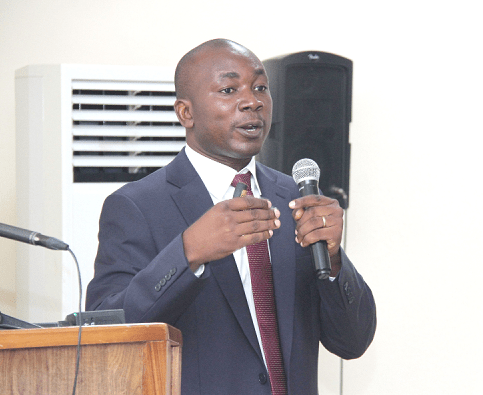
Let’s use agric to reduce poverty — Economist
AN Economist and Lecturer at the University of Ghana, Professor Godfred Bopkin, has reiterated calls for increased investments in the agriculture sector to help create more jobs for the teeming unemployed youth in the country.
He said although Ghana had signed onto the Comprehensive African Agricultural Development Programme (CAADP), which required that it committed at least 10 per cent of its gross domestic product (GDP) to the agriculture sector, the country had over the years committed less than three per cent of its budgetary allocations to the sector.
That, he said, had starved the sector of the needed resources required for it to effectively play its role as the backbone of the economy.
He said studies had shown that if the country even boosted agriculture output by US$1 million, it would create about 750 new jobs.
“Our job creation capacity rests with agriculture and agribusiness. The Ghana Statistical Service social accounting metrics show that with the exception of output, agric has the highest multiplier effect when it comes to employment and income.
“Agriculture has the highest inequality reducing effect,” he said during a round-table discussion in Accra organised by IMANI Centre for Policy and Education and the GIZ in Accra.
The discussion, dubbed, IMANI-GIZ Reform Dialogue, was on the theme, ‘How will Ghana’s 17th International Monetary Fund (IMF) Programme Impact Investment
in Agriculture and Manufacturing Sectors?’
Ghana at IMF
Prof. Bopkin said the fundamentals of the country’s economy began deteriorating before COVID-19 broke and that due to the low resilience of the economy it again succumbed to the shocks.
He said the optimal time to have made the application was last year, such that by now the support would have come and the programme would have been concluded.
“What gets sacrificed in all of this has been critical investment in the growth of sectors that should move us out of poverty- agriculture, agribusiness and manufacturing.
But now that we're going for an IMF programme, the future rests with us because IMF will not impose anything on us. So, this is the best time to make the right inputs to whatever programme that would be developed focusing on agric and agribusiness and manufacturing,” he said.
He added, “Unlike the IMF of old, the IMF today is much concerned about issues such as inequalities, unemployment, climate change and the rest. In its own macro framework of doing things, it values these.”
The Chief Executive Officer (CEO) of the Chamber of Agribusiness Ghana, Anthony Selorm Morrison, said there had been shortfalls when it comes to the implementation of the CAADP and other home-grown policies for the agric sector due to less commitment to the sector over the years.
“What we are expecting out of this IMF engagement is to see strategically how the private sector is given the opportunity to lead in the development of a long-term strategic agriculture sector investment plan that can provide sustainable agro-industry anchored on agro-industry exports,” he said.
He proposed that policies in the sector should be harmonised and aligned with other global policies to be able to take advantage of the opportunities that exist.
No IMF
For his part, the General Secretary of the General Agricultural Workers Union (GAWU), Edward Kareweh, said the existing level of challenges within the agriculture sector was enormous enough to ground the sector, adding that a Bretton Wood programme would worsen it.
He said the sector could shrink to the point where it could barely cater for the needs of the people.
Already, he said, the majority of Ghanaians who were under the poverty line were in the agriculture sector and noted that going to the IMF would further constrain government policies to support the sector.
Consequently, he said the union was totally opposed to the government’s decision to seek support from the IMF.
“The solution does not lie with the IMF. The consequences of going to the IMF will mainly be borne by labour and that is why we are opposed to it. IMF will expect the government to cut down wages, freeze wages and all manner of things that do not inure to workers welfare,” he stated.
Instead of going to the IMF, Mr Kareweh asked the government to be prudent with its expenditure and rather seek reforms at the IMF to enable countries such as Ghana to benefit from the fund in a positive way.